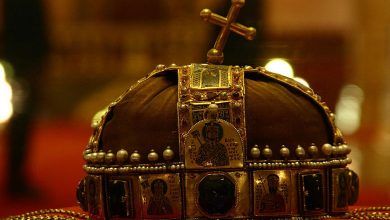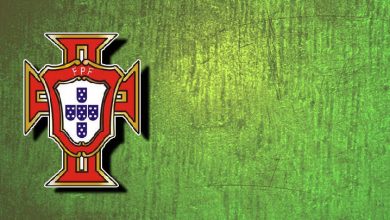A Czech Must-Read: The Good Soldier Švejk, by Jaroslav Hašek
This Czech Classic Should Be On Your To-Read List

There are many facets to a country’s culture. History, geography, cuisine, religion, and many more would fall under that definition. Learning about them, however, will only get you to a certain point in understanding this cultural worldview. If you really want to get to know its people and their outlook on life, you will need to read its literature.
European literature, in this regard, is particularly varied. Every country – every region – has its own defined characteristics, ones which comprise the cultural baggage which people from that country have rooted within them. Analysing European literature in all of its traits and idiosyncrasies is the best way to truly soak in what Pierre Bourdieu called the habitus: each country’s cultural capital, the deeply ingrained habits and skills of its people, and the dispositions which they possess due to their life experiences within that culture. In short, reading a country’s literature allows you to understand its people.
There are some books which manage to capture that, and as such, have become classics of national and European literature. Czech author Hašek’s “The Good Soldier Švejk” is one of them.
Jaroslav Hašek: A Life
Jaroslav Hašek was born on April 30, 1883, in Prague, which at the time was part of the Austro-Hungarian Empire. Bohemia, as the region was then known, was part of the Austrian half of the Empire, with German playing a major role in culture and administration. The author’s grandfather, František Hašek, had participated in the Prague Uprising of 1848, and later went on to become a member of the Austrian Parliament in Kroměříž, Moravia.
In his youth, Jaroslav Hašek was expelled from school at the age of fifteen for bad behaviour, but swiftly recovered from the setback. He found employment mixing drugs for a pharmacist and then studied business, graduating with honors. He then became a bank clerk, but quit after an episode in which he refused to run an errand in order to spend time at the pub. Thereafter, he supported himself by selling dogs – a profession shared by his stories’ main character, Švejk.

Hašek was an anarchist, and often found himself arrested for unruly behaviour, including vandalism or assaulting a police officer. He fought in the First World War, and was captured in Russia in 1915, being then sent to a camp for prisoners of war, where he served as a commander’s secretary. In 1916 he joined the Czech Legion, a military unit of Czech nationals that switched sides and fought for the Entente against the Central Powers. When Russia descended into revolution, Hašek joined the Bolsheviks’ fledging Red Army. During his revolutionary military service, he became a bigamist, wedding a second wife.
During his time in Russia, Hašek was mistakenly reported dead at home. Upon returning to Prague in 1920, he wrote an article called “How I Met the Author of My Obituary”. He started writing the Švejk stories after this, but he was unable to finish them before he died of tuberculosis, caught during the war. He was 39 years old at the time.
The Good Soldier Švejk
The Good Soldier Švejk is a collection of satirical, dark humor adventure stories, detailing the farcical vicissitudes of the titular soldier, as well as his dealings with incompetent authority figures.
Hašek originally intended the Švejk stories to be published in a total of six volumes, but only three were completed, and a fourth begun, before his untimely death. Among the works of Czech literature, this is the most translated and appreciated internationally, with an unexpected impact on popular culture. American author Joseph Heller has said that he would have never written his most famous novel, Catch 22, if he had not read Švejk first.
The author’s own biography plays an important role in the story. The protagonist’s adventures start off at the beginning of the First World War and the assassination of Franz Ferdinand, the heir to the Austro-Hungarian throne. Švejk is a humble, good humoured, rheumatic dog seller who gets arrested for predicting that a war will break out because of the assassination. After various, increasingly absurd adventures in prison and in a mental institution, he is conscripted into the army. The rest of the stories follow Švejk’s military life.

While the events of the book vary from grotesque to humorous, never during the entire collection is there a description of a battle. All the events of the book are about the daily routine of life at the front, as well as the functioning of the multicultural, multi-language armed forces of the Empire. The few deaths that impact the character happen off screen, and are mentioned only in passing. Švejk speaks German well enough to be picked as an orderly, first to a camp priest, and then to an officer. Upon falling into Russian captivity he uses his German knowledge to work in an office.
The novel underlines the hypocrisy and incompetence of the aristocracy, as well as the unfair and humiliating hierarchy of the armed forces in the stories. The book also contains strong criticism of the clergy. The priest who initially makes use of the protagonist’s services is an alcoholic and a gambler, and loses Švejk’s services to the officer by betting them during a game of cards. The officer in question, Lieutenant Lukáš, actually appreciates Švejk’s loyalty and ingenuity, but after a few mishaps is glad to be rid of him. Švejk himself is presented as naive, if good natured character, but by the end he seems to solve every situation in the most absurd and convoluted way possible, usually while getting his direct superiors into trouble.
Why should you read it?
Through their good-spirited humour, the Švejk stories are a powerful anti-war piece. The tales might be humorous throughout, but the situation in which the main character is thrust is always acutely tragic. The patriotic feelings present at the beginning of the story are slowly phased out and replaced with the descriptions of the hardships of military life.
Humour is the indispensable coping mechanism that allows soldiers to deal with their hardships. Read in their entirety (as far as the author could complete them), Švejk’s adventures are a good prompt to reflect on the values of patriotism, the price of war and human dignity. They are also a good reflection of the spirit of eastern-European thinking and cleverness as a way to overcome hardship.





